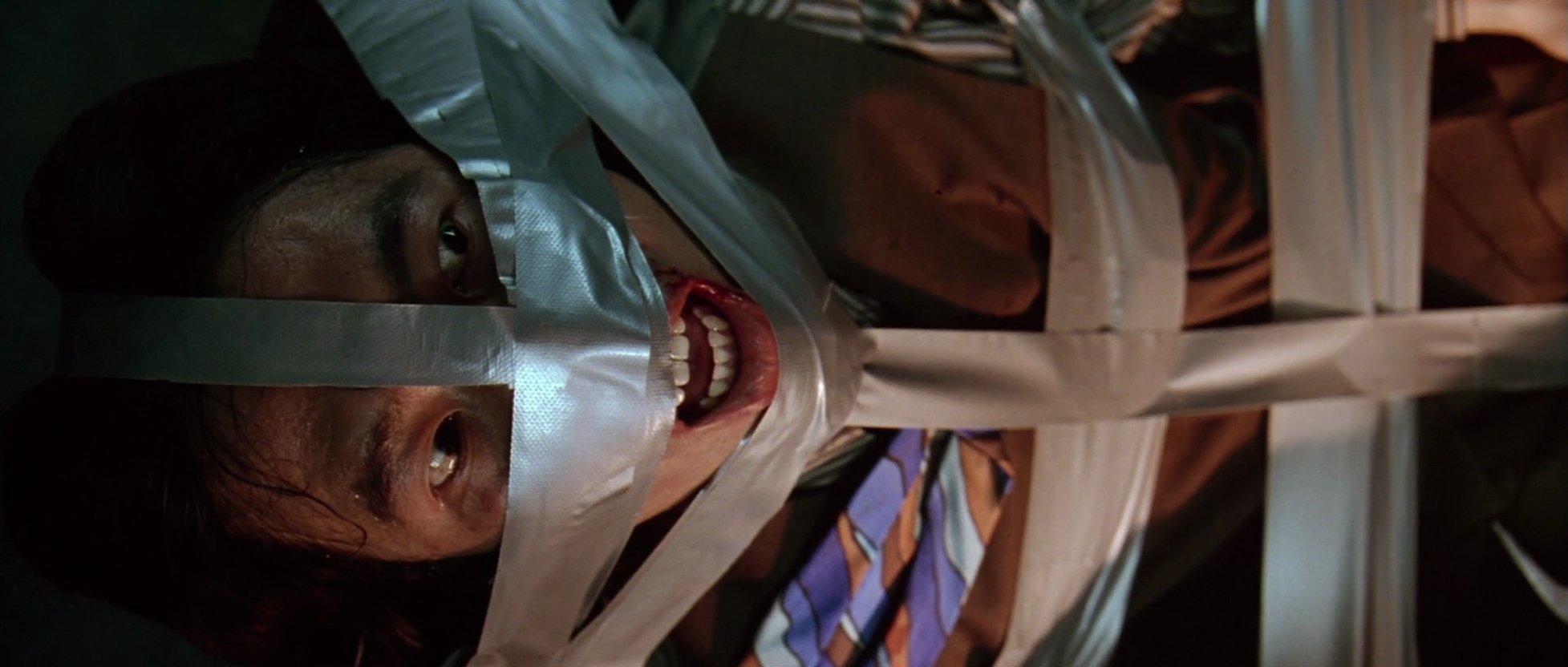Oldboy (dir. Park Chan-Wook, 2003) — Review
Park Chan-Wook is best known to Western critics as the figure who brought the Korean neo-noir to Western attention, paving the way for Bong Joon-Ho, Squid Game, and the darker side of the hallyu or Korean wave. What explains the camp, lurid, Oedipal overtones of his 2003 feature Oldboy? The ultra-violent flick, beloved of Tarantino and global box offices alike, played a pivotal role in destabilizing the Confucian-esque image of the Asian man which predominated markets until, arguably, the rise of Henry Golding and Simu Liu. Like the best of Western culture, it hinges on one thing and one thing only: Catholicism.
Chan-Wook was raised in a strict Catholic family, an outlook which would culminate in his 2009 vampire-priest flick Thirst. But the core themes of his religious upbringing shine through in the vehement rejection of modernity, and embrace of tradition, in Oldboy — itself an adaptation of a Japanese manga.
Like many forms of postwar Asian mass media, Oldboy synthesises various images of ugly, debilitating conflict. The film blends neo-noir, Western revenge tragedy, and classical Greek drama to sketch the utterly insane turns of the wheel of fortune — a journey which sees protagonist Oh Dae-Su (Choi Sin-Mik), a drunken and debauched businessman, kidnapped to an underground bunker for fifteen years, emerging to a new world marked by unthinkable excesses of joy and agony. Oh Dae-Su’s path charts eerie parallels with the shift towards authoritarianism in global politics — a poster boy of the ‘left behind’, he watches the death of Princess Diana and the outbreak of the Iraq War on a TV in his bunker, deprived of any other human context.
Utterly detached from society in this manner, Oh Dae-Su has no recourse but religion.
Deprived of anything but immediate sensory input after his release, Oh Dae-Su resorts to three modes, each honed during his confinement. ‘Can 10 years of imaginary training be put to use?’ he wonders, emerging into a street fight after a decade spent with only Korean public broadcasting for company. ‘Apparently’, he muses, launching into the first of many gloriously grisly melee scenes, ‘it can’.
Yet Oh Dae-Su’s three forms of instinctive human knowledge — violence, sex, and eating or drinking — prove endlessly unreliable. These most fundamental instincts blur swiftly into the realm of animalism, drawing the erstwhile hero of the story into a tangle of conflicting accounts: one where the fundamental impulses of human nature become distorted by overloaded modernity. A montage which flashes up tracking his imprisonment at the start of the film illustrates the perspective of globalization’s discontents — not just in Korea, which happens to offer a particularly vivid and intense illustration of a historical process, but for all those emerging into an unfamiliar world at the turn of the millenium.
Of course, detachment from the social bonds that give life meaning — whether in a pre-modern Confucian society, a postwar Westernized one, or the cursed hinterland in which the characters of Oldboy find themselves adrift — serves to rewrite and destabilize old certainties. The ruthless, systematic destruction with which Oh Dae-Su attempts to give the sorry remains of his life after captivity some new significance leads only to further alienation, as the audience and protagonist alike find themselves battered by conflicting forces of sensory and semiotic input.





